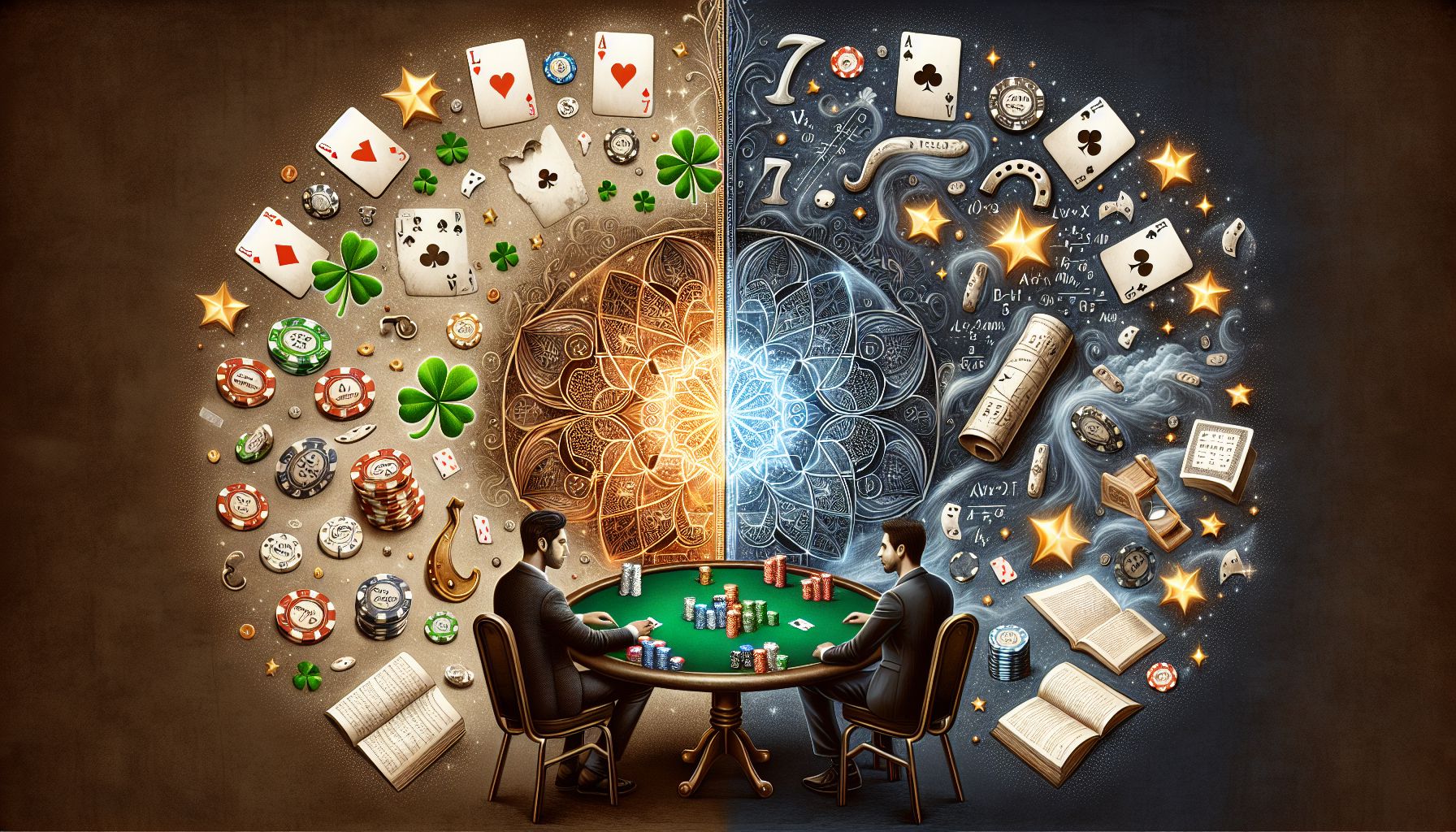Introduction
Casino poker is an intriguing blend of luck and skill, The Role of Luck versus Skill in Casino a melting pot where both elements constantly interact and shift proportions to influence the game’s outcome. This complex interplay raises the inevitable question of which factor holds sway. Is poker primarily a game of luck, much like blackjack or roulette, or a game of skill akin to chess or soccer? In this insightful journey into the heart of poker, we will delve into the intricacies of luck and skill and how they shape the game.
Understanding the Nature of Poker
Before diving into the skill versus luck debate, The Role of Luck versus Skill in Casino it is essential to understand the fundamental nature of poker. Unlike other typical casino games, poker is markedly different in its play. It’s not just another player against the house situation; here, players compete against one another, the house merely facilitating the game and taking a small cut called a rake.
Poker is a game of incomplete information where players make bets based on the strength of their hands and also the perceived strength of their opponents’ hands. And this is where the aspects of skill and luck begin to coalesce, allowing both elements to factor significantly in the game’s outcome.
The Role of Luck
Luck, the unpredictable and uncontrollable force that can make or break fortunes, holds a considerable slice of poker’s pie. Nobody can foresee which cards will be dealt next, creating an environment of uncertainty. This very unpredictability is what adds an element of chance, creating a level playing field for novices and pros alike.
Without an ounce of doubt, luck can dictate the short-term results in poker. A first-timer can sit at a table, get dealt pocket aces (the best possible starting hand in Texas Hold’em), and win the pot without a clue on what the odds or strategy were.
However, luck is inherently fleeting, its influence waning over time. While a novice might win a hand, or even several in a row owing to sheer luck, maintaining a sustained winning streak over longer sessions or against skilled opponents becomes increasingly unlikely. That’s where poker reveals itself to be clearly more than just a game of chance.
The Role of Skill
Proponents of poker being primarily a game of skill rightly point to the involvement of strategy, psychology, and logical deduction at the heart of this game. The skill element manifests in various ways when playing poker.
Poker involves strategic decision making, where each choice impacts the game’s progression. Players must discern when to call, raise, or fold, considering factors like their cards, the betting pattern, the number of players, and their position at the table.
Beyond the realm of these tactical decisions, poker is also a game of deception, observation, and psychological warfare. Skilled players can manipulate the betting action, put opponents on a range of hands, read ‘tells,’ and bluff effectively, turning potentially losing situations into winning ones. This ability to influence the game’s outcome through tactics and strategizing leans poker undeniably towards the skill side of the spectrum.
Strategy and intuition aside, poker also incorporates mathematical and statistical analysis. Armed with knowledge about probabilities, pot odds, implied odds, and other related statistical data, players can make more informed, profitable decisions.
Balancing Luck and Skill: A Chess Match with a Roll of the Dice
All being told, poker is a beautiful interplay of both luck and skill, somewhat like a chess match that involves rolling dice now and then. You can’t command the dice, but you can choose how to respond to the roll.
A skilled poker player, for example, might lose to a beginner in a single game due to unfortunate luck of the draw. But play that same game hundreds of times, and the seasoned player’s skills will put them ahead most of the time. Over the long haul, skill will prevail over luck.
It is this fascinating duel between control and unpredictability that forms poker’s core allure. No two games are ever the same, every hand dealt with holds the potential for a multitude of strategic plays. And yet, intertwined with every decision, rides the undercurrent of chance.
Conclusion
Poker is a dynamic game revolving around the duality of luck and skill. While luck dictates the short-term outcomes, skill unquestionably glares in the backdrop as the determinant of long-term success. A skilled player can strategically navigate the waters of uncertainty, The Role of Luck versus Skill in Casino turning the tides of luck in their favour time and again.
In conclusion, poker is neither purely a game of chance nor entirely a game of skill. While luck can steal the limelight in individual sessions, it is skill that consistently takes the centre stage in the grander scheme of things. As with life itself, poker oscillates between the ebb of unpredictability and the flow of controlled strategy. It is, after all, the skill at managing the uncontrollable element of luck that separates the pros from the amateurs.
